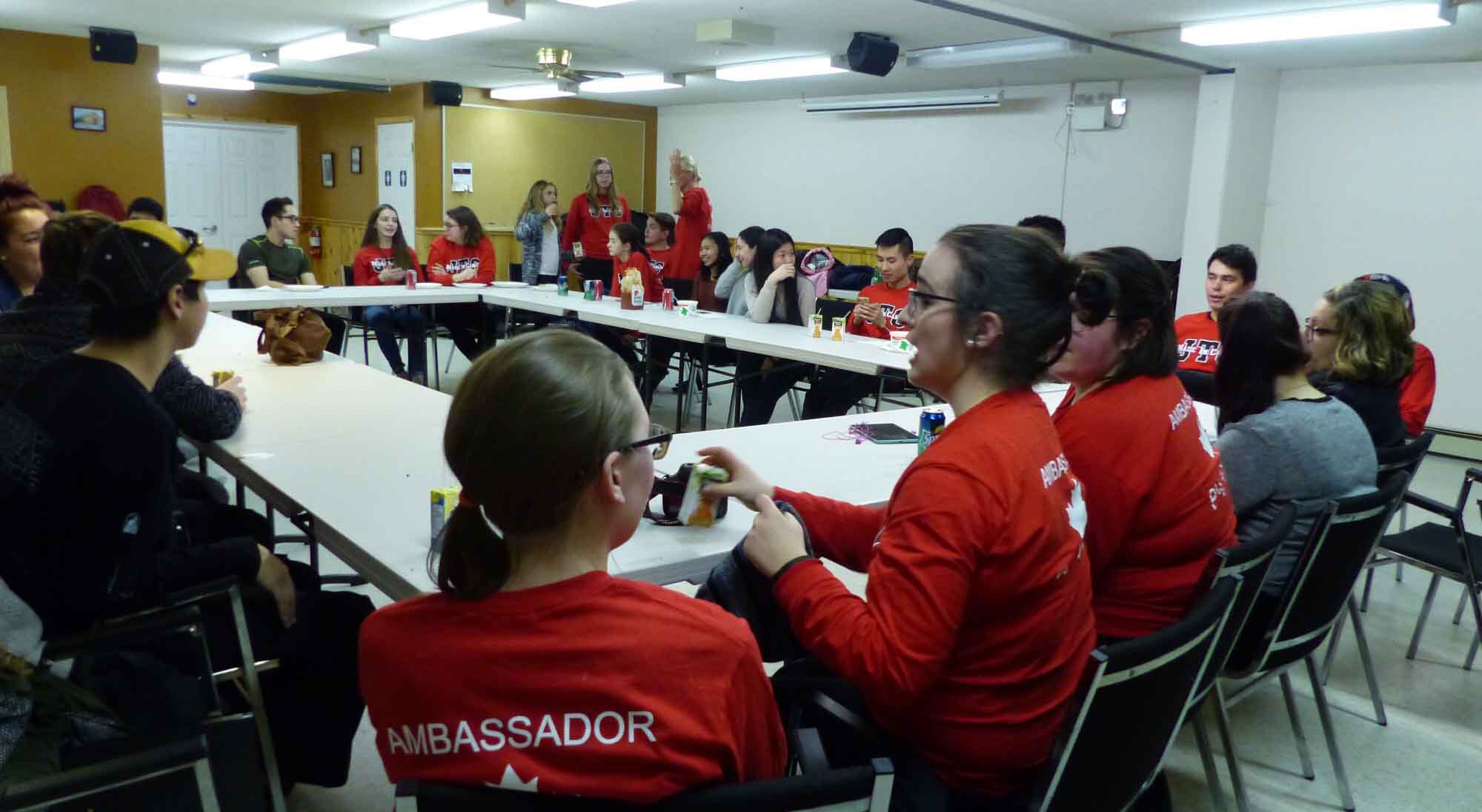
While Week 8 of this semester likely saw many students camped out in libraries, Justine Aman was having a unique learning opportunity outside the walls of campus. The third year sociology student spent March 8 to 12 in Iqaluit, Nunavut at the Arctic Youth Ambassador Caucus.
Alongside 24 peers from Canada provinces and 25 from Northern communities, Aman engaged in activities and roundtables geared at discussing the challenges facing northern communities.
Aman says her initial interest in the program came out of an academic project. In a population health class she was required to perform a needs assessment for a global health issue.
Upon researching her chosen issue, HIV/AIDS prevalence in Canada’s Indigenous populations, she found there was relatively little data on the topic.
“I wanted to know how to get a first-hand glance,” she says. After exploring various options on campus, she found the Youth Caucus, hosted through Global Vision — a Canadian charitable organization focused on global development. Choosing youth leaders to talk about food security, climate change, health and wellness, Aman felt the Caucus’ goals aligned with her personal mandate.
During her week up north, delegates congregated daily at a local church to attend the conference, cook meals and socialize.
“Going in, I had an open mind because I don’t have an academic background in these issues, and I haven’t yet been involved with groups on campus,” said Aman. “My main goal was to listen, come back, and report.”
In recounting her week, it was evident that the experience was a moving one.
For Aman, the conference was about dialoguing on misconceptions around challenges that exist in northern communities and discussing practical solutions from a national perspective. At the roundtable sessions, delegates had the opportunity to hear from youth leaders from northern communities about the sometimes problematic, though possibly well-intentioned, “solutions” offered by those outside of their communites.
Returning to Queens, Aman already has plans to share her experience and spark dialogue.
A current volunteer at the Sexual Health and Resource Centre (SHRC), she hopes to present at its annual general meeting. “A lot of people at the SHRC are involved with various groups on campus,” she said, speaking to the ripple effect she hopes her presentation will have within the Queen’s community.
That said, Aman was very grateful for her experience. “My main takeaway is how important dialogue is, and the need for connections between the North and South,” she said.
To have these lines open can be essential for a future generation of leaders, according to Aman. In speaking with high school students from northern communities, Aman felt that the conference also created important connections for those considering attending university in the provinces, away from family and friends.
“Going to post-secondary doesn’t necessarily mean abandoning your home,” she said, reflecting on the conversations. It means you will bring something back to create sustainable change for your community.”
Speaking to the connections she made, she said she not only made new friends from northern communities, but also some closer to home. “It was heartwarming to see how incredibly engaged my peers were.”
Tags
Arctic Youth Ambassador Caucus, Health, Indigenous populations, Iqaluit, Nunavut
All final editorial decisions are made by the Editor(s)-in-Chief and/or the Managing Editor. Authors should not be contacted, targeted, or harassed under any circumstances. If you have any grievances with this article, please direct your comments to journal_editors@ams.queensu.ca.
